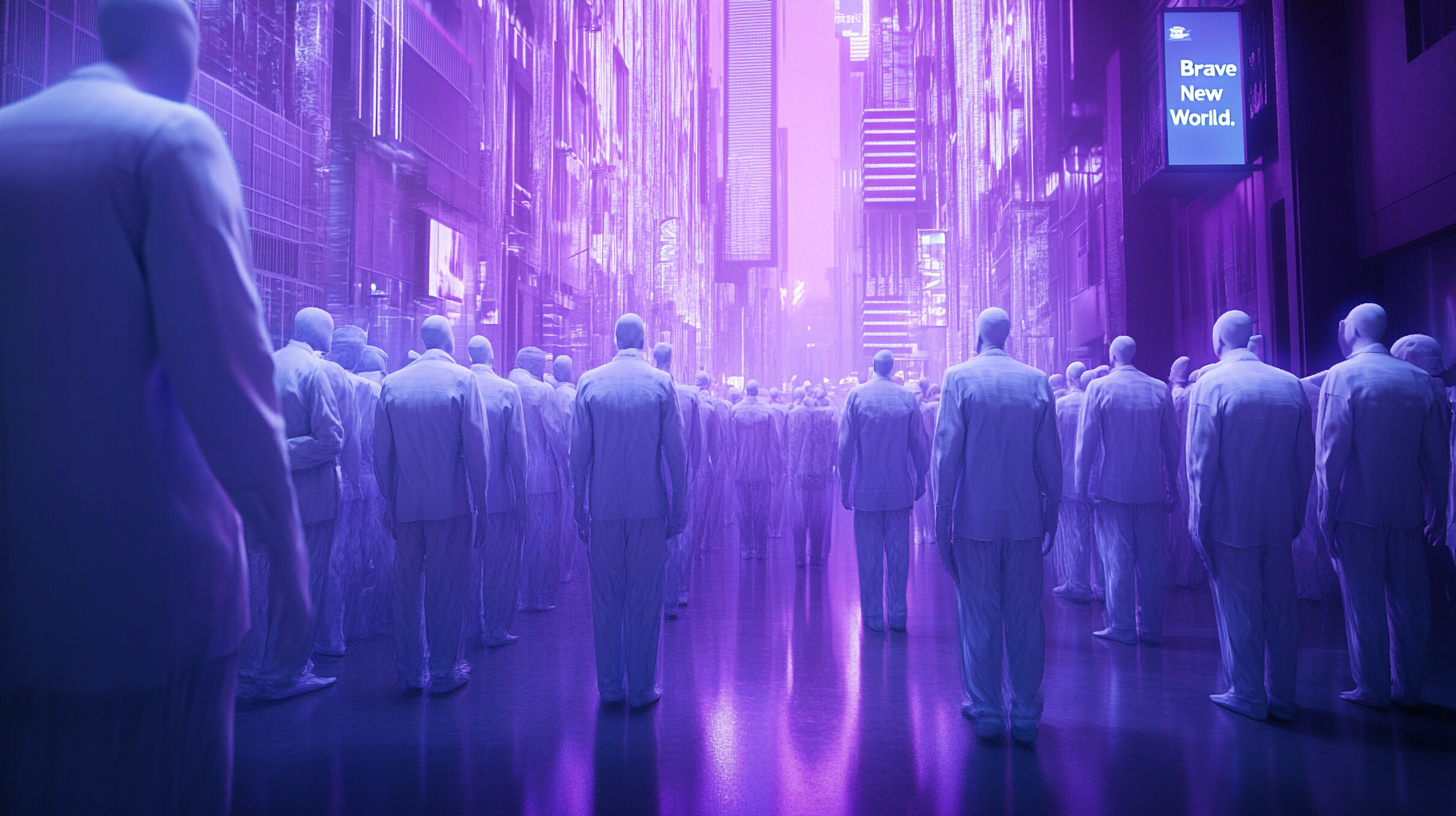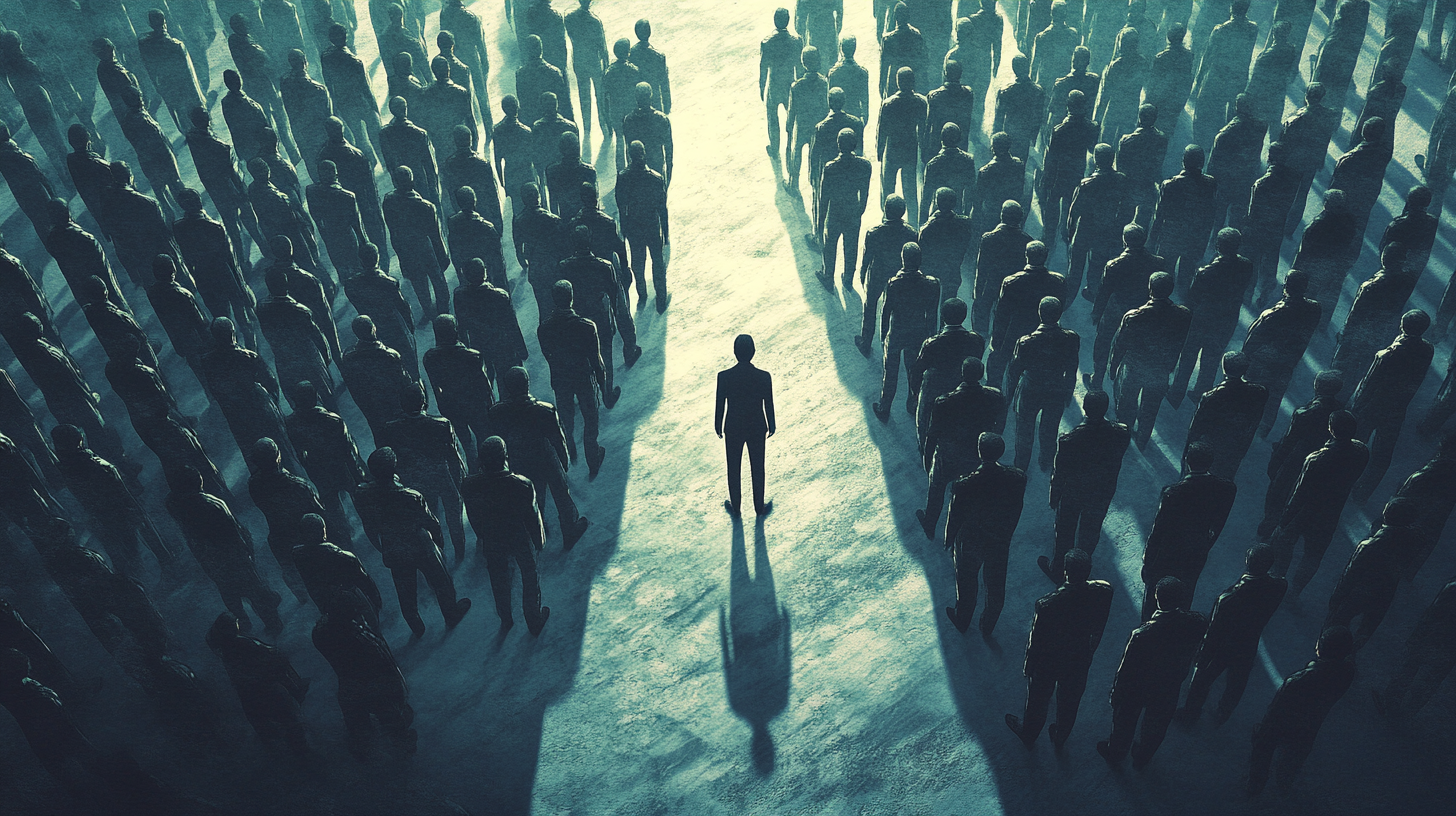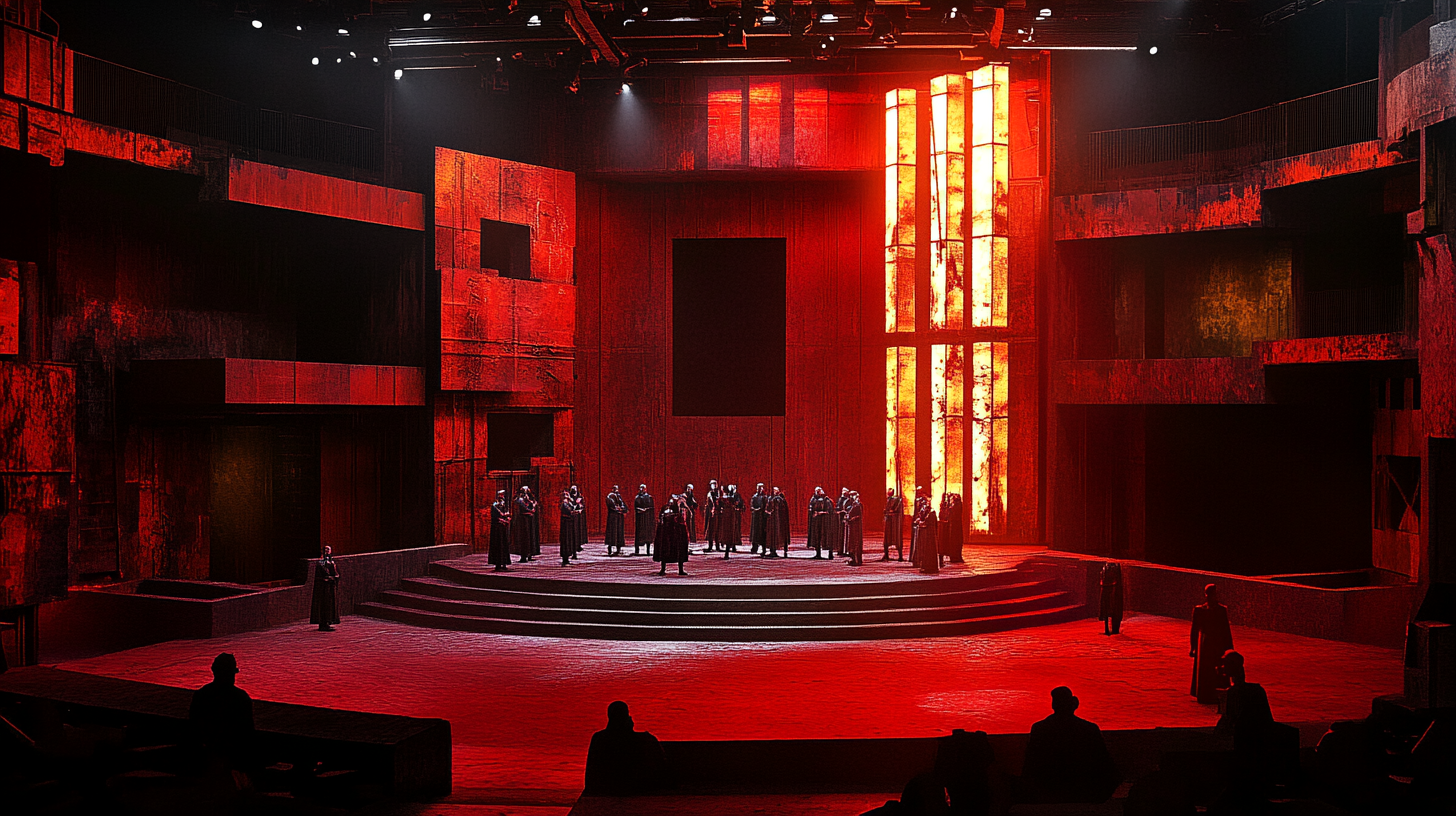"Brave New World" Warns of a Society Built on Pleasure
Aldous Huxley’s "Brave New World" remains one of the most chilling dystopian novels of the 20th century. This review explores its themes, world-building, and lasting relevance in today’s technological age.

Few novels have left as lasting an impression on the science fiction genre as Aldous Huxley's "Brave New World." Published in 1932, it is one of the most significant dystopian works of the 20th century, offering a vision of the future that is at once seductive and deeply unsettling.
Unlike other dystopias that depict oppressive regimes built on fear, Huxley imagines a world where people are controlled not by force, but by pleasure. Stability is maintained through genetic engineering, psychological conditioning, and a state-sanctioned drug that ensures perpetual contentment. The result is a civilization where mankind has abandoned hardship, but at the cost of its soul.
Huxley wrote "Brave New World" at a pivotal moment in history. The devastation of the First World War had shaken Western ideals, and the Great Depression was driving political and economic uncertainty. Meanwhile, scientific advances in mass production and psychology were transforming the modern world. Inspired by Henry Ford's assembly line, Huxley saw the potential for a society where efficiency replaced individuality and material comfort became a tool of control. His novel reflected both a fascination with progress and a deep skepticism about its consequences.
Aldous Huxley was uniquely positioned to explore these ideas. Born into an intellectual British family, he was known for his keen observations on society, technology, and human nature. "Brave New World" was his most ambitious work to date, a novel that distilled his concerns about the future into a sharp and prophetic critique. Nearly a century later, its warnings remain as relevant as ever. The book is not just a cautionary tale. It is a profound meditation on the dangers of technological control, the fragility of human individuality, and the consequences of a society that prioritizes comfort over truth.
Setting and World-Building
The future envisioned in "Brave New World" is one where order is absolute. The World State, a highly organized global society, is designed to eliminate conflict, suffering, and unpredictability. Efficiency is paramount, and every aspect of life—from birth to death—is meticulously controlled to maintain stability. Unlike dystopias that rely on overt repression, Huxley's world achieves compliance through pleasure, conditioning, and carefully structured social hierarchies.
The foundation of this society is genetic engineering. Through the Bokanovsky Process, human reproduction has been mechanized, producing thousands of nearly identical individuals tailored for specific roles. Alphas, the ruling elite, are designed for intellect and leadership, while lower castes such as Epsilons are biologically conditioned for menial labor. There is no need for personal ambition or discontent when people are programmed to love their assigned place in life.
Psychological conditioning ensures that this system remains unchallenged. From infancy, children are subjected to hypnopaedic learning—repetitive messages played while they sleep—that shape their beliefs and desires. They grow up embracing consumption, fearing solitude, and rejecting any thought of rebellion. The result is a world where personal freedom is unnecessary because no one is capable of wanting it.
Soma, a government-issued drug, further secures compliance. Whenever negative emotions arise, citizens take a dose, slipping into a blissful, consequence-free escape. Pain, grief, and even deep thought are rendered obsolete. There is no need for coercion when pleasure serves as a more effective tool of control.

What sets "Brave New World" apart from other dystopias is its method of subjugation. Orwell's "1984" maintains order through fear and surveillance, while Zamyatin's "We" enforces rigid uniformity. Huxley's vision is more insidious—people are not oppressed. They are sedated, entertained, and conditioned into willing obedience. His world-building is strikingly immersive, with the mechanics of the World State revealed through natural dialogue and character interactions rather than heavy exposition. The result is a vision of the future that is all the more unsettling because of how effortless and seductive its control appears to be.
Themes and Philosophical Depth
"Brave New World" presents a vision of the future where stability is achieved not through oppression, but through carefully engineered contentment. Huxley's dystopia challenges the reader to consider whether a world without suffering, hardship, or conflict is truly utopian—or whether such a world comes at the cost of human depth and individuality. The novel's most striking themes remain relevant today, as advances in technology, consumer culture, and media influence continue to shape society in ways Huxley anticipated.
The Cost of Stability is central to the novel's critique. The World State has eliminated war, poverty, and suffering, yet it has also removed the qualities that make life meaningful. True love, deep friendships, and the pursuit of knowledge have been replaced by shallow pleasures and rigid social roles. Huxley suggests that suffering is not merely an obstacle to be eliminated but an essential part of human growth and self-discovery.

The Role of Science and Technology in shaping human behavior is another major theme. Huxley warns that unchecked technological progress can strip individuals of their autonomy when used to engineer social stability. The novel's depiction of widespread conditioning and preordained roles serves as a cautionary tale about the dangers of scientific advancements being used to limit free will rather than expand it.
Consumerism and Instant Gratification drive the World State's economic and social order. Citizens are conditioned to seek pleasure above all else, avoiding discomfort at any cost. Entertainment, material goods, and the drug soma ensure that people never experience boredom, dissatisfaction, or introspection. Huxley's critique of a society prioritizing endless consumption over meaningful experiences remains strikingly relevant in an age of mass media and digital distractions.
The Suppression of Individuality is perhaps the novel's most chilling warning. In the World State, there is no oppression in the traditional sense—citizens do not resist because they have been conditioned to desire their own subjugation. Huxley presents a world where free will has been carefully managed out of existence, raising the unsettling question of whether a society can be truly free if its people no longer wish to be.
Huxley's use of irony and satire strengthens his message. Unlike dystopias that depict brutal totalitarian regimes, "Brave New World" presents a civilization where people embrace their own limitations. The lack of overt tyranny makes the novel's warnings even more unsettling, forcing readers to consider how easily a society can surrender its freedom when comfort and stability are placed above all else.
Characterization and Narrative Style
The characters in "Brave New World" are not just individuals. They represent competing worldviews, each embodying the novel's central themes rather than serving as deeply personal figures with rich inner lives. Huxley constructs them as embodiments of his novel's central themes rather than as deeply personal figures with rich inner lives. This deliberate approach serves the novel's purpose but has also led some critics to argue that the characters feel more like philosophical constructs than fully realized people.

The novel follows individuals from different social strata of the World State, each offering a distinct perspective on this engineered society. Some characters accept the world unquestioningly, while others struggle against its restrictions. Through them, Huxley explores the consequences of a civilization that has sacrificed depth for stability. Their interactions reveal how conditioning has shaped every aspect of life, from personal ambition to romantic relationships.
Huxley's narrative style is detached and clinical, mirroring the sterility of the World State. His prose avoids emotional flourishes, instead presenting events with an almost scientific precision. This impersonal tone reinforces the idea that the society he describes is one devoid of deep feeling. The language is efficient, just like the world it depicts, making the moments of genuine human emotion stand out even more starkly.
One of the novel's most striking literary devices is its use of Shakespearean references, which serve as a counterpoint to the artificiality of the World State. Shakespeare's works, rich with passion, tragedy, and complexity, highlight everything that has been lost in this so-called utopia. Huxley uses these allusions to remind the reader of what true humanity looks like, contrasting the depth of Shakespeare's language with the shallowness of a world that has erased such works from its culture.

While some readers may find the characters more symbolic than relatable, this is precisely Huxley's intent. "Brave New World" is not a character-driven story but a philosophical exploration of control, pleasure, and the meaning of freedom. The characters exist to illustrate these ideas, making the novel's message all the more powerful.
Literary and Cultural Legacy – A Warning That Refuses to Fade
Since its publication in 1932, "Brave New World" has remained one of the most provocative works in science fiction. Early critics were divided—some praised its satirical brilliance, while others found its vision too bleak or cynical. Over time, however, Huxley's novel has proven itself to be one of the most enduring dystopian narratives, influencing countless works of literature, film, and philosophical debate.
Many later dystopias owe a debt to Huxley's vision. Orwell's "1984" presents a far harsher form of control, but both novels warn of societies where truth and individuality are casualties of progress. More contemporary works, such as "The Matrix" and "Black Mirror," explore similar themes of engineered contentment, questioning whether a world built on pleasure can ever be truly free.
The relevance of "Brave New World" has only grown in the modern age. Huxley's warnings about distraction, conformity, and the power of technology feel more prescient than ever. In an era where social media shapes perception, biotechnology advances rapidly, and entertainment culture dominates daily life, the World State no longer seems like an implausible nightmare. Huxley did not merely predict the future—he saw the trajectory of human complacency and its consequences.
Nearly a century later, "Brave New World" remains essential reading. Its message is not just a cautionary tale about a possible future but a challenge to recognize the forces shaping our present. Huxley's world may be fiction, but the questions it raises about freedom, individuality, and the cost of comfort are more pressing than ever.

